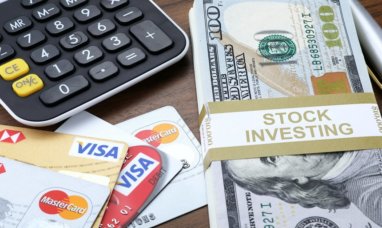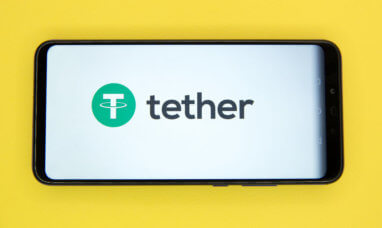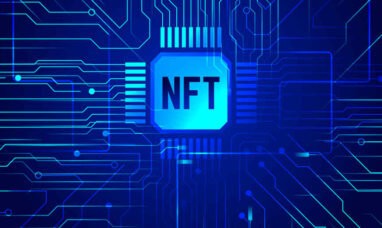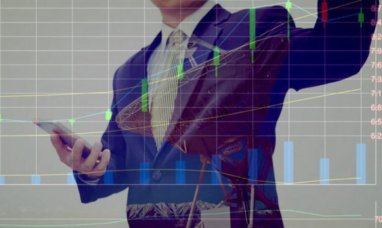Are you interested in making money by investing in futures?
Many investors purchase contracts based on the value of an asset without directly purchasing the asset. These contracts are called derivatives and are a very popular form of investing. Derivatives allow investors to spend less money, reduce risk, or both.
Derivatives may seem complex, and they can be, but the core idea is very simple. Futures contracts are a very popular form of derivative that gave rise to the market of derivatives today. How did this simple contract for farmers turn into one of the biggest financial derivatives?
Let’s take a look at futures contracts, how they are traded, what markets they are traded in, the risks and opportunities of futures contracts, and finally how to access and purchase your own.
What is a Futures Contract?
A futures contract is simply a way to guarantee the purchase of something at a future date for a fixed price. These contracts were originally used by merchants and farmers who wanted to guarantee the purchase of their crops at a future date for a fixed price.
As you set the price ahead of time, you will always pay the fixed price of the contract at some point before the fixed expiration price. This arrangement is actually a very old method of trading goods, and it has been typically used for commodities.
For example, say a corn farmer wants to sell 5,000 bushels of corn at $5 per bushel in June. The price of the commodity may fall before his harvest is ready, but the futures contract to sell 5,000 bushels in June at $5 per bushel would guarantee that he received a fair, agreed-upon price.
At the core, a futures contract is an agreement to receive a fixed future price for goods. However, futures have evolved into new forms as the financial services sector creates new financial products and trades them on open exchanges.
How Are Futures Traded?
An investor in the future can buy and sell the contracts without actually holding them to expiration. This means that the futures investor can profit on the contract itself without ever having to handle the underlying goods or securities. This is the basic idea of derivatives trading.
While a farmer or commodity producer may simply hold the contract in case prices drop, which is an approach that operates like insurance, a derivatives investor will buy and sell the contract as a speculative investment. In other words, the investor is seeking to profit from price changes.
While the original futures contracts were reserved for commodities such as food and crude oil, they have evolved to include financial securities themselves. Futures contracts on stocks and stock market indexes are available to investors, and so are other derivatives in securities.
For our previous example, corn futures currently trade on the Chicago Mercantile Exchange (CME) for 5,000 bushels per contract at $5.48 per bushel. The contract in full costs $27,500 and moves $12.50 for every ¼ cent movement or tick.
So, if you owned one corn futures contract, and the price of corn moved up $1, that’s 400 ticks at $12.50 per tick. The contract would increase in value by $5,000 and could be sold for a profit. The contract buyer simply resells the contract instead of taking physical delivery of the corn.
This is how futures contracts are traded for profit by the financial sector without having to handle the physical underlying assets. This means that an investor can access the entire world of free trade through commodity futures and equity futures.
Commodities, Equity, and More
The most important function of futures is to facilitate the flow of physical commodities worldwide. However, there are many other important functions of these contracts.
Commodities
Commodities represent the building blocks of free trade, including foods, metals, and energy. Commodity futures allow anyone to access these markets from the outside. While the most important function is for producers and trade, they have high speculative potential.
The single most valuable commodity in the world is crude oil, and this commodity is also the most volatile commodity in the market. This means that the price fluctuates rapidly, and investors can make the most profit by trading its derivatives.
Of course there is a wide market outside of crude oil, and this includes nearly every major agricultural or mineral commodity imaginable. Each commodity has its own seasons, behaviors, suppliers, and market dynamics.
Equity
Equity is traded everyday between investors, just as other goods and commodities are traded. This equity flows in the form of shares on the stock market. Each share represents partial ownership, or equity, in a company. These shares also fluctuate in price and allow for profits.
A category of equity futures are those based on the S&P 500 or SPY instrument. These futures track the overall performance of the US stock market and represent the overall health of the global economy. Shares in this index fund can be purchased directly or through derivatives.
The contract works the same way as for commodities. A SPY futures contract represents the right to purchase shares at a future date at a fixed price. The contracts themselves will fluctuate in value, and they can be bought and sold for profit without purchasing underlying shares.
For example, an increase in delivery percentage and a decrease in stock price for stock futures means that investors are selling off their SPY futures. This is a sign of a future decrease in the stock market, and an equity futures investor could take a short position or wait for low prices.
Other Markets
If it can be traded, and it’s traded often, then it likely has some sort of futures contract.
One popular asset class for futures are foreign currencies. Exchange rates are always changing, the amount of currency that can be traded for other currencies changes every day. For example, a futures contract for $10,000 USD worth of Euros will change in value every day.
If the value of Euros in US Dollars goes up, the contract is worth more money and can be sold for a profit. Alternatively, if the price of the Euro goes down, then the contract is worthless money and would be sold at a loss.
Additionally, bonds, such as 10 year US treasury notes, can be financed with futures contracts. This allows an investor to take a position on the price of government bonds or similar debts in order to make a speculative profit.
Risk and Margin
The main appeal of derivatives is the ability to take a large position with a small amount of money. Futures brokers will offer contracts on margin. This means that an investor can take a large position, say 10,000 barrels of crude oil, while spending a fraction of the price.
However, margin comes with risk. While it may only take $2,500 to purchase a contract worth $10,000, the remaining value is borrowed by the broker. If the $10,000 contract decreases in value by $2,500, the initial margin is completely wiped out or liquidated.
This means that futures contracts on margin offer increased risk for the tradeoff of increased profit potential. Margin investing can be particularly risky, especially with expensive contracts in volatile markets. The margin simply provides a way to spend less to take the same position.
One method to offset the risk of futures contracts on margin is options. Just as derivatives can be purchased on commodities and securities, derivatives like options can be purchased on other derivatives like futures as the underlying asset.
Individual derivatives can be combined into increasingly complex layers, or structured products. These arrangements allow investors to take on minimal risk for maximum potential profit. It also allows companies to offer new financial products to investors and financial institutions.
Instead of purchasing a futures contract at margin from a futures broker, an options broker can sell the right, but not the obligation, to purchase a futures contract at a future date. This means the futures contract position can be taken for a fraction of the cost with fixed loss potential.
This idea of building financial contracts based on the financial obligations of market activity is why derivatives are invented and sold. A broker or exchange will sell derivatives like futures contracts just as anyone else would sell a product.
How to Buy Futures Contracts
Buying a futures contract, with or without margin, is very simple. A retail broker will offer a wide range of futures contracts for sale to anyone that registers with their company. Many of these are available through the internet and can be very quickly and easily set up.
Making money on futures is a different question. A successful futures investor has trained insight into the markets and the ability to foresee future price movements. These positions are based on careful research, analysis, and expertise in financial markets.
Something simple like a futures contract on the S&P 500 allows exposure to the stock market as a whole at a reduced price. Much like options, derivatives allow investors to reduce the costs of investing in commodities and securities.
Price quotes and contract specifics can be found through the Chicago Mercantile Exchange. While the CME pioneered the use of futures in financial markets, there are many other international exchanges and brokers that serve them.
Featured Image: Twenty20








